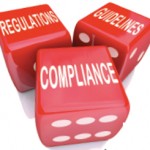Practices should perform due diligence prior to hiring or promoting a person to the role of compliance officer. It is important to ensure:
- Individuals with substantial authority have not engaged in any illegal activities or conducted themselves in a manner inconsistent with the practice’s Code of Ethics;
- Screening procedures are in place for all new hires, such as performing background, criminal and exclusions checks; and
- Previous employers are contacted prior to hiring or promoting individuals.
Additionally, policies and procedures should be in place that require the organization to review the office policies at least once a year. A Code of Conduct or Code of Ethics should be created to set expectations for employees’ behaviors and attitudes. Having employees who know what is expected of them and adhere to and promote ethical behavior based on shared organizational values will provide a safeguard for the practice. Also, whenever changes are made to practice’s policies and procedures, communication should be sent out or posted to alert staff to the updates. This should also be incorporated into office training.
More Than Compliance
Compliance programs provide benefits by helping prevent erroneous or fraudulent claims, and also by showing that the organization is making good faith efforts to keep the practice in line with federal and state regulations.
Providers should view compliance programs equivalent to clinical practice. Embracing an active application of compliance principles in the culture of the practice with continuous efforts toward compliance can help prevent future problems. Some added benefits of having an effective compliance program include:
- Increasing patient and employee safety;
- Increasing patient and employee satisfaction;
- Ensuring accountability;
- Reducing billing mistakes;
- Streamlining and improving business operations; and
- Creating a team environment.
With so many areas of the law expanded and additional dollars at risk, 2019 is critical for physician practices to reassess their HIPAA and practice compliance programs. Now is the time to begin compliance efforts by evaluating all HIPAA processes, including statements of privacy practices, patient attestation documents and release-of-information procedures. Practices that may have used manual logs and journals to document disclosures in the past should think about implementing technology that can track the process more efficiently.
Having a compliance program sends the important message that leadership recognizes the importance of making the practice efficient. For training on practice management compliance, don’t miss the ACR/ARHP Annual Meeting premeeting courses addressing the critical business, payer and regulatory issues that affect physician practice management. These interactive programs are designed to help you and your team be more aligned toward your practice goals and vision.


